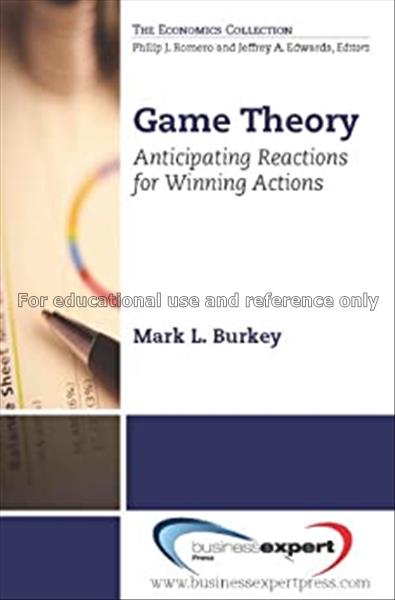Game theory : anticipating reactions for winning actions / Mark L. Burkey
Author : Burkey, Mark L

From its beginnings in the early 1900s, Game Theory has been a very mathematical, technical subject. However, it also provides valuable, everyday lessons that are important for managers and executives to understand. Current books and textbooks are mostly highly mathematical, and almost all are very long. This primer will deliver a focused and precise, largely nonmathematical overview of topics in Game Theory that are directly relevant managers and professionals in many fields. Game Theory is the science of action and reaction. While most standard economic analyses embody the science of making an optimal choice, this kind of analysis is largely undertaken in a vacuum. For example, every managerial economics textbook examines profit maximization for a firm to choose the optimal price and quantity given its cost structure and demand of its customers. However, when a firm raises or lowers its price, this is rarely the end of the story--competitors are likely to react by changing their prices and quantities as well. Game Theory adds in this extra layer of realism. This book will teach people to think ahead and foresee possible reactions to their actions. We will examine games played against ones' competitors, against one's employees, against oneself, bargaining situations, and how to get the most out of cooperative teams. Whether making an initial venture into the world of game theory, or looking to expand upon the basics learned in a course, this survey of game theory concepts will add critical components to the reader's strategic toolbox. Additional material is posted on the book's website to facilitate learning, including videos and other learning tools
| Barcode | Call No. | Volume | Status | Due Date | Total Queue | |
|---|---|---|---|---|---|---|
| 1010080167 | EC00356 | Available | 0 | Please Login |
Related Book